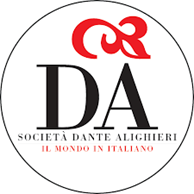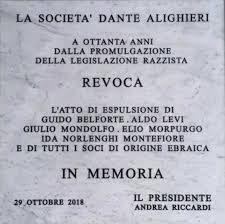Bibliotheca Italiana at the UB
While many students may enjoy the occasional taste of Italian culture, little do they know that the Netherlands is one of the 84 countries hosting branches – comitati – of the Società Dante Alighieri, with a committee right here in the city of Groningen.

The Società Dante Alighieri
On May 11, 1899, a group of intellectuals led by Giosuè Carducci founded La Società Dante Alighieri, with the aim to ‘protect and spread the Italian language and culture across the world, strengthening the ties of compatriots abroad with the mother country and nurturing love and admiration for the Italian civilisation among foreigners’. Given the historical period in which La Dante was founded, the main mission of the society was twofold. Firstly, it wanted to check on the migrants' health and boarding conditions. Secondly, its aim was to provide migrating Italians with a small library that teachers could use to educate illiterate compatriots during the journey at sea. With this idea in mind, movable libraries were instituted. By 1920-21, the society comprised of 200 committees within Italy and its former colonies, and 93 outside the country.
Between 1903 and 1932 Paolo Boselli was president of La Dante. During these years profound changes were put into motion. After Benito Mussolini visited the headquarters in 1924, a royal decree assigned Palazzo Firenze in Rome as the site for La Dante in 1926. In 1932, Giovanni Celesia di Vegliasco was nominated president of the society by the fascist government. The government took full hold of the Società during the infamous year 1938. Jewish associates and collaborators were expelled via private correspondence sent out to the presidents of the various committees throughout the country. Mussolini used the society as an instrument for his Italianist propaganda, instating statutes in 1931 that obliged the society to interpret Italianità (= Italianity) as a synonym of fascism. In 1938, he also tried to destroy the foreign branches of La Dante under the control of the Italian embassies. While he did not succeed, the fascist period harmed the reputation of the institution as an independent organisation, as its founders had always advocated political and religious freedom up until then.
Following the liberation in 1944, young members of La Dante came up with a manifesto, marking the rebirth of the society after the war. In 1945, a new democratic statute declared that:
La Società Dante Alighieri, founded in 1889, aims to protect and disseminate the Italian language and culture in the world, independently from any political view, race, nationality, confession or ideology. This independent association belongs to those who are united by the love for the Italian language, which is connected to humanism and the universal language of music, and who are morally inspired by the high model of the Dantesque character.
This statute was approved by the decree of the president of the Italian Republic in 1949. The 1950s were also the period in which foreigners started to show interest in La Dante and the Italian language in general. Nowadays, the scope of the Società Dante Alighieri remains the same. In 1994, the diplomat Bruno Bottai, son of Giuseppe Bottai – the founder and director of the fascist magazine Critica Fascista – became president of the society. He remained in charge until 2014.

Revoking the Jewish expulsion
This revocation, performed by Andrea Riccardi as president of La Dante, arrived 80 years after the promulgation of the Italian Racial Laws of 1938. Many thought this action came too late. Nothing had been done before to annul or apologise for the expulsion. A headstone set in Piazza Firenze in Rome commemorates the revocation of the expulsion of the circa 500 Jewish members of La Dante. The unveiling ceremony coincided with a conference and a campaign against antisemitism organised by La Dante named La cultura italiana, la Società Dante Alighieri e l'antisemitismo italiano. Amongst the people present at the uncovering of the headstone were Andrea Riccardi, the society's president at the time, Chief Rabbi Riccardo di Segni, and the president of the Jewish Community in Rome, Ruth Dureghello. The relatives of the expelled 500 members also attended the conference and received a diploma assigning them perpetual membership to the Società Dante Alighieri.

